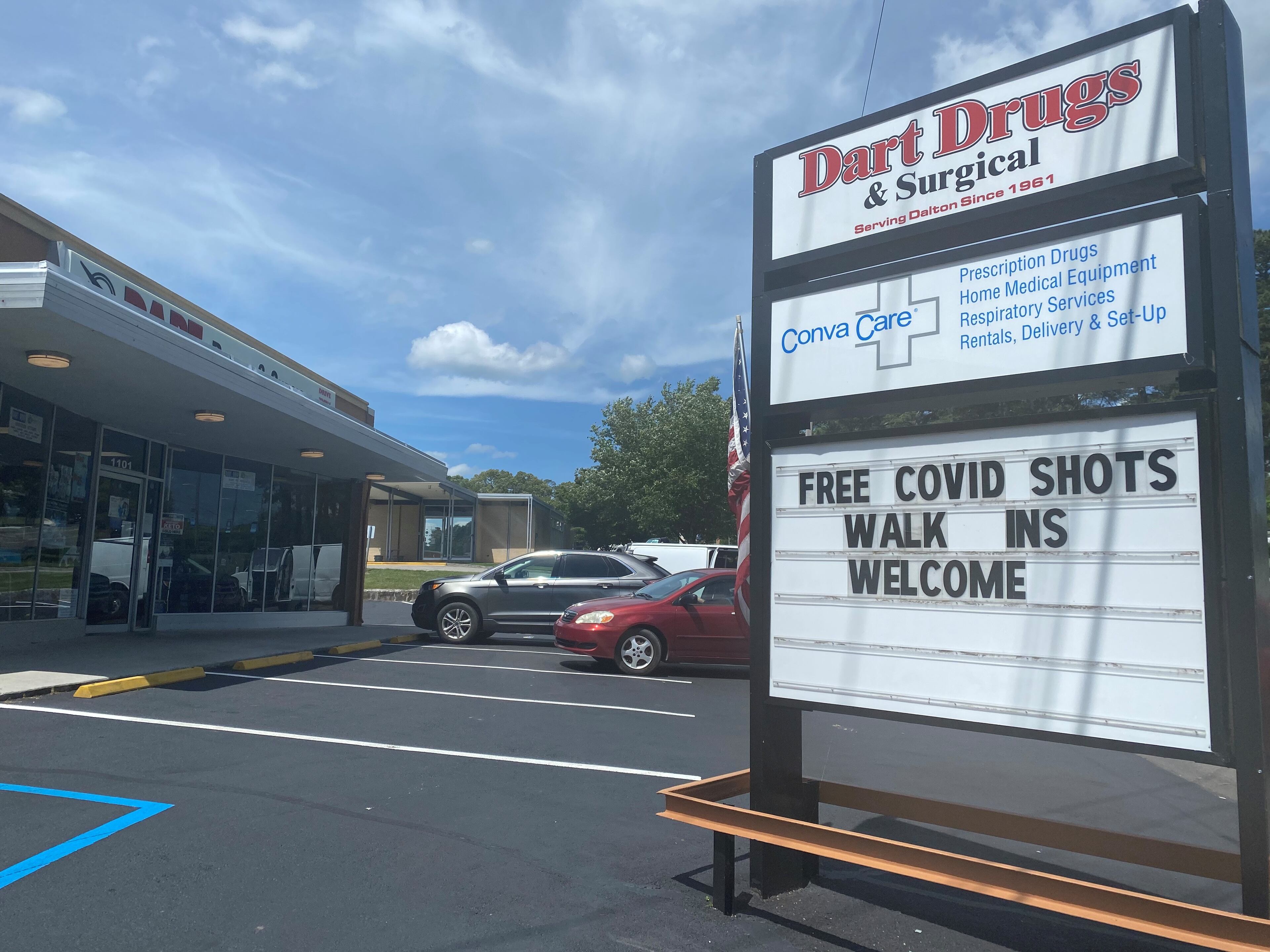CDC director: One-on-one effort needed for vaccine campaign

CDC’s new director on Thursday visited a rural Georgia front of the war on coronavirus to see what it will take to win. Or if winning is possible.
In meeting with leaders and public health workers from the Whitfield County area and asking for their take, Dr. Rochelle Walensky said there’s hard work ahead.
“There’s not this massive influx of people in communities like this who are lining up to get vaccine,” Walensky said.
Georgia’s vaccination rate lags most states’, and Whitfield County’s is in the bottom half of Georgia counties’. State data show just 29% of the county’s residents have had one shot of vaccine, and less than a quarter are fully vaccinated. That is far short of numbers that might constitute herd immunity.
With the eager mostly having been vaccinated, the vaccination campaign is now in its toughest phase: reaching those who have hesitated.
The public health district based in Dalton, Whitfield’s county seat, is working to reach out to hesitant groups by teaming with local businesses and other organizations. Like other areas in Georgia, though, the district has seen dwindling success from large-capacity vaccination sites that rely on people traveling to them.
“I think somebody said, ‘We need to get in their way,’” Walensky said in an interview with The Atlanta Journal-Constitution, recalling remarks from a carpet industry official and another attendee she met with Thursday morning in Dalton.
“And that is, we need to go where they are”—placing vaccination workers so close to people that ignoring them is an active choice—“And be pleased with every shot that gets into an arm, and do the hard work of going one by one.”
Demographics and hesitancy
A few miles down the road from the health department, pharmacist Joy Basden has seen a lot of success getting people vaccinated through the one-on-one approach.
Dart Drugs and Surgical has served the area since 1961, and the workers there know their customers. Basden has often asked customers who came in for something else whether they’ve been vaccinated, to start the conversation and address their fears.
“That’s mostly what it entails,” she said.
Basden thinks most of the people she’s spoken to always intended to get vaccinated or were easy to convince, but she believes she has changed some minds.
The county’s demographics may make it more of a particular challenge, even though Whitfield has the second-highest coronavirus case rate in the state.
Statewide, the vaccination rate among Latinos lags those of other groups, and Whitfield has a large portion of Latino residents: 36.3%, according to census figures. Many work in the area’s carpet and flooring industry.
Some Georgia counties with the highest vaccination rates also have a high percentage of adults with college degrees. Whitfield’s rate of college-educated residents is half that of the state’s.
Surveys have also shown that vaccine hesitancy is higher among Republicans than among Democrats or independents, and Whitfield is a deep red county. More than 82% of Whitfield County voters supported Donald Trump for president, and 84% voted for U.S. Rep. Andrew Clyde, a Republican who recently made headlines by claiming that the Jan. 6 Capitol insurrection was like “a normal tourist visit.”
Robert Bednarczyk, assistant professor of global health at Emory University who focuses on vaccine acceptance, called such demographic information just a starting point.
“We can’t paint everyone who may identify with particular demographic characteristics to all have the same attitudes and the same perceptions,” Bednarczyk said in a recent online press event. He called for intense investment of public health resources in person-to-person conversations and making vaccine readily available.
‘Waiting to see’
Many public health workers in Georgia agree, as does Walensky.
But it takes a lot of people and resources to go mobile: to do outreach, make pleas to businesses, houses of worship and other familiar gathering places, schedule events, set up events, and put shots in arms.

Walensky said she was “inspired” by the dedicated health workers and community leaders she met in Whitfield County.
Are there enough? “Do I think we need to multiply that? Absolutely,” she told the AJC. “And then do I think we need to multiply that across this country? Absolutely. Because right now, we’re talking about vaccinating people one by one.”
Some area residents the AJC spoke to as they shopped at a Dalton Kroger center Thursday morning drove home the point.
Those who’d been vaccinated had health workers in their families, except one who was a professor.
Others said they had not run across a health worker who discussed getting them vaccinated.
Some said it wouldn’t have helped anyway. “I don’t have a good opinion of the vaccine,” said Jacqueline Rodriguez, 54, a jovial restaurant worker who lives in Chatsworth. “I don’t know what is the truth right now.”
Emily Caldwell, 25, said she she waited to get vaccinated until she saw a relative do well after getting a shot.
Others on the fence, she said, might be swayed by hearing from a health worker. She thinks of a friend who works at another Kroger across town that had a vaccination event. Her friend spoke to the pharmacist in charge of the vaccines. The pharmacist answered his questions, and he decided to get vaccinated.
“A lot of people we know that aren’t vaccinated are waiting to see,” Caldwell said.
At the public health office, Walensky watched as public health workers vaccinated the Hall family, including 12-year-old Larry Hall.
Larry can’t wait for the freedom that he expects to come with vaccination, seeing other kids and eating out, “without a mask and gloves all the freaking time.”
His mom, Jessica Hall, said there’s a lot of misinformation circulating about the vaccines, but she did her own research. “If other people don’t want to get vaccinated, it’s their business,” she said. “But it’s only going to prolong this thing.”

